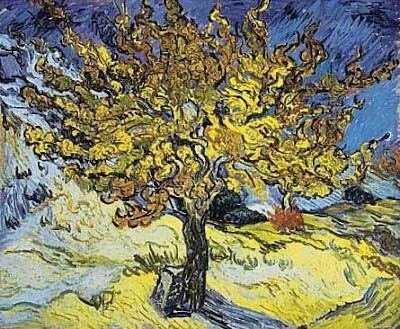The dynamism of the kingdom of God - Mt 13: 31-35
Jesus' speech in the parables provides us with two more pictures, which, although different in content, nevertheless pursue the same goal. For this reason, most biblical editions include them as an inseparable unit of the text, although this is not a permanent rule. The parables about the mustard seed and the leaven because we are talking about them, show the dynamics of the kingdom of heaven.
First, Jesus, while remaining on the topic of sowing, points to the mustard seed, which he calls the smallest of all seeds. We know today that there are many seeds much smaller than mustard seeds. It was the same in Palestine during the time of Jesus' earthly life. Therefore, one should not take Jesus' words literally. The mustard seed, commonly known at the time, in the teaching of Jesus becomes a symbol of something very small, the tiniest. Besides, Jesus used this example because only a mustard seed, which is so small and about 1 mm in diameter, grows into a plant that is so large. In Palestine, the mustard bush was up to three meters high. No wonder it resembled a tree that sheltered birds. The main emphasis of the story rests on the extraordinary power of growth inherent in a small seed.
In the second example, Jesus compares the dynamism of God's kingdom to a leaven necessary in the process of baking bread. In ancient Palestine it was the job of women housewives. In the technology of baking bread, leaven was used, thanks to which the flour was transformed into a risen dough, from which it was possible to form loaves of bread. The amount of leaven is negligible in relation to the amount of flour. In the parable, Jesus speaks of three measures of flour. It is generally accepted that one measure was about forty kilograms. So, it is a fairly large amount of flour, which turned into dough thanks to a very small amount of leaven. As in the first parable, Jesus highlights the enormous creative dynamism of a small amount of the leaven substance.
Although the first parable deals with gardening in which a man is involved, and the second with the processing of flour into bread with a female lead, the common denominator of both examples is the incredible strength inherent in being small. In this way, Jesus tries to illustrate the dynamism inherent in the kingdom of God, which arises on earth through the power of his word, his teaching.
In the initial stage, it seems like a dream without a raison d'être: a group of simple people following the Teacher of Nazareth, hostility and misunderstanding on the part of the spiritual leaders of the nation, the suspicion of the occupying authorities, the specter of persecution and ideals so lofty that for many they are devoid of realism. And yet what seems so weak that it is almost impossible to implement has a hidden, even incomprehensible force of development. It lies in God's blessing, in the devoted attitude of the disciples, and later it will come primarily from the Holy Spirit, who will soon come upon the Church. A small group of disciples faithful to Christ, called a sect by many, will eventually grow into a Christian community of millions. What Jesus foretold in colorful parables; we perceive from our perspective as a finished work. We also become convinced that the incredible strength in a small grain or a little leaven only partially depicted the reality that Jesus had in mind at the time.
“And this gospel of the kingdom will be preached throughout the world as a witness to all nations, and then the end will come” (Mt 24:14).
Until Tomorrow
fr. george


